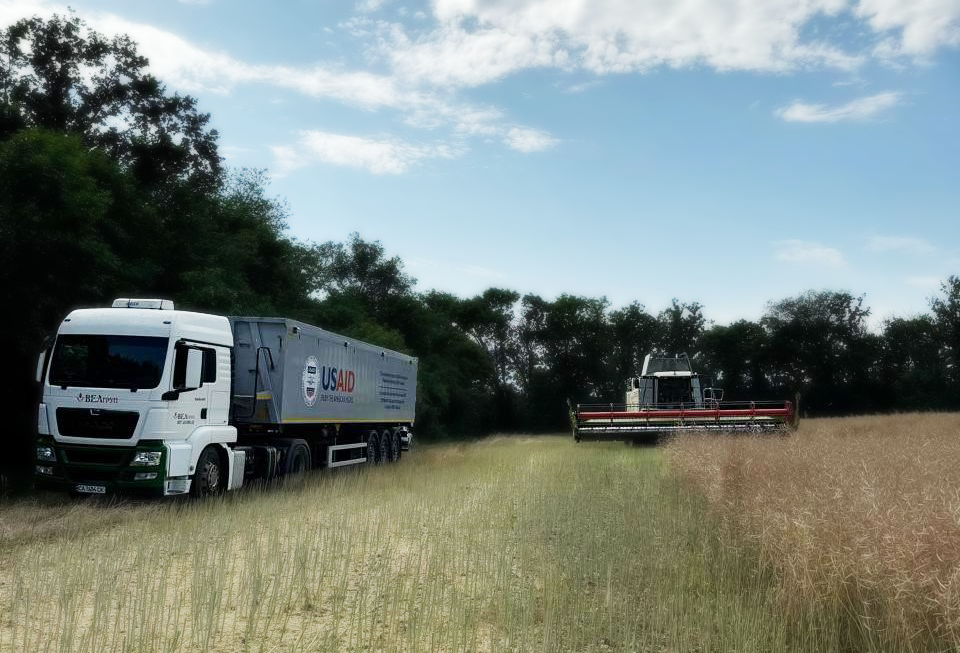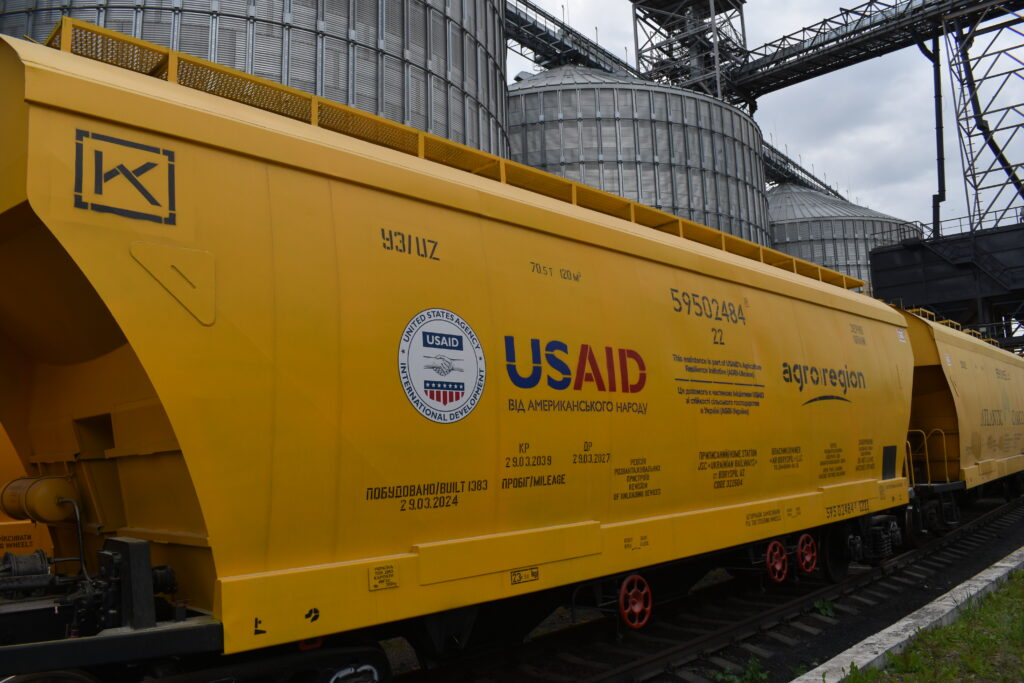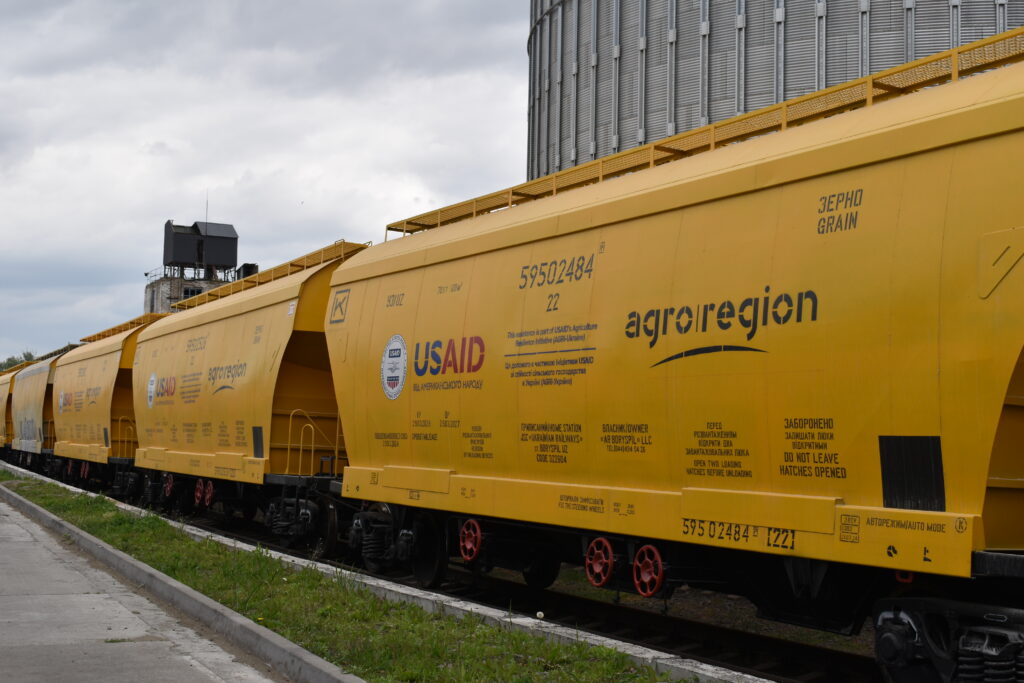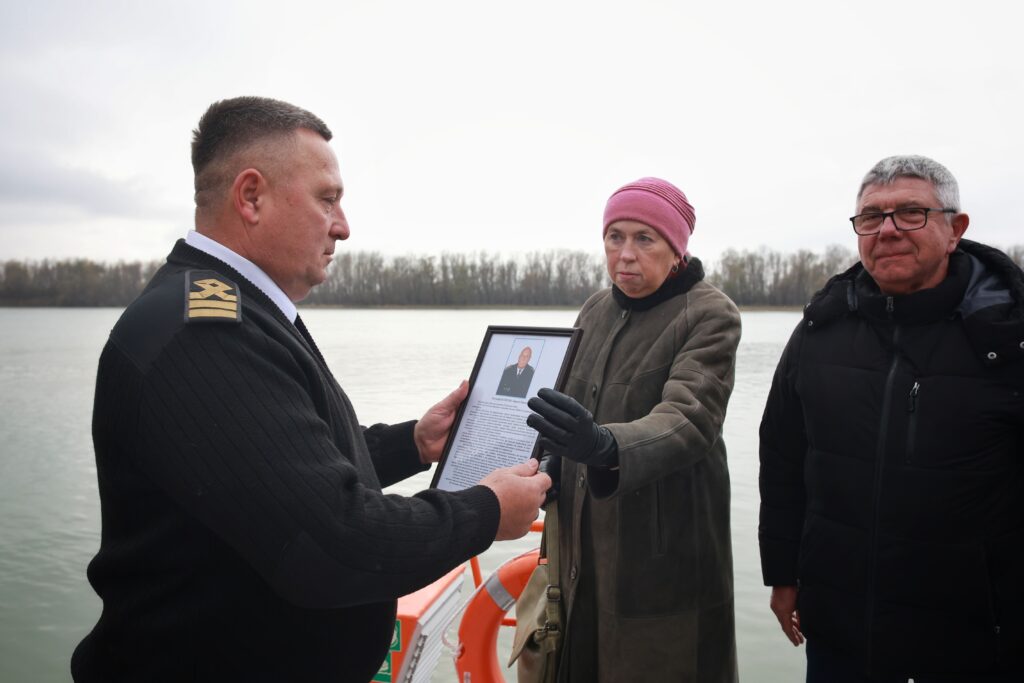USAID, through its Economic Resilience Activity (ERA), provided crucial grain logistics equipment to Ukrainian grain exporter Urochyshche Zhuravske, which helped prevent losses of around 20 percent in the harvest year 2024. The equipment included two 100 kW generators, a telescopic handler, bucket filler, trailer, and truck scales.
Russia’s full-scale invasion in February 2022 severely disrupted Urochyshche Zhuravske’s operations, with port closures forcing rapid logistics pivots. The USAID-provided trailer helped solve logistical issues, bringing crops to ports without relying on rentals, saving time and enabling faster contract fulfillment. Power outages posed another significant obstacle, bringing activities to a halt, but the USAID-provided generators helped the company continue operations.
According to Igor Novytskyi, Technical Director of Urochyshche Zhuravske,
“During the wheat and rapeseed harvest season, when power outages lasted for days, the generators enabled us to process the crops on time, preventing losses of 15-20%. The generators allowed us to weigh, clean, and unload grain without interruptions.”
The truck scales provided by USAID doubled the efficiency of load processing, allowing two trucks to be weighed simultaneously, which is critical for meeting contract deadlines when speed is paramount. In addition, the USAID-provided telescopic handler with bucket fillers significantly streamlined big bag loading, accelerating goods prepared for transport and export. According to Urochyshche Zhuravske, they processed 3,400 tons of rapeseed in the fastest possible time, fulfilling export and domestic contracts.
Ultimately, thanks to the new equipment, Urochyshche Zhuravske was able to continue business and contribute to national food security during wartime.
Background
LLC “Urochyshche Zhuravske” in Cherkasy Oblast is an agricultural enterprise that has been cultivating approximately 6,000 hectares of land since 2009. The company specializes in growing grain and oilseed crops, including wheat, corn, soybeans, sunflower, and rapeseed. A team of over 90 employees manages both owned and leased lands.
Background: Assistance to agricultural producers and infrastructure companies is part of the Agriculture Resilience Initiative (AGRI) – Ukraine, implemented by the United States Agency for International Development (USAID). It aims to help Ukraine increase its capacity to produce, store, transport, and export grain.
